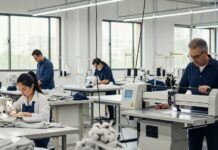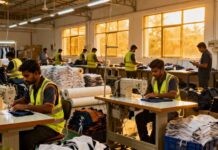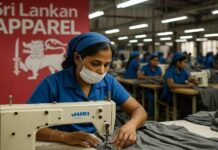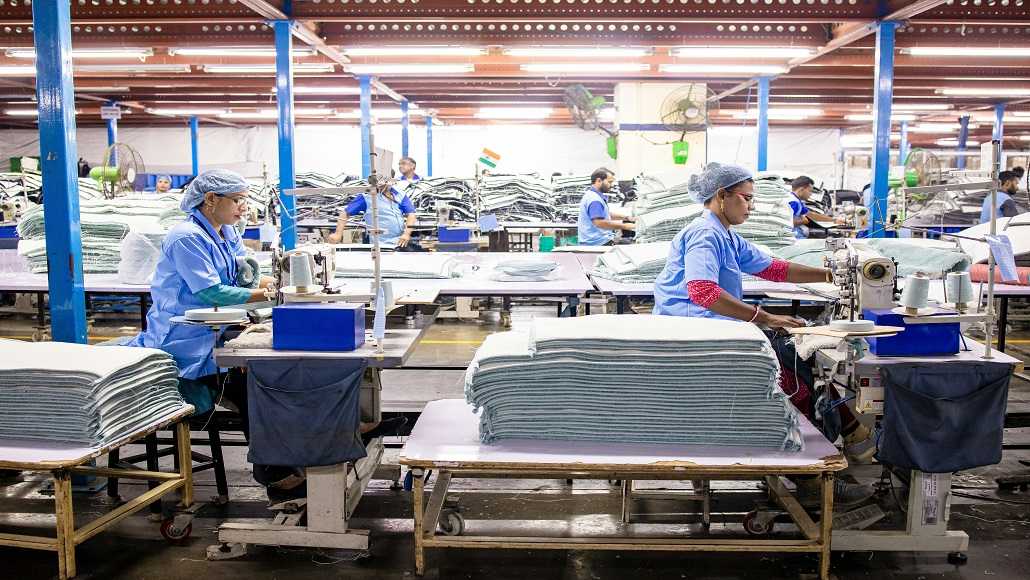Cascale, formerly known as the Sustainable Apparel Coalition, has released a comprehensive report examining the strides Bangladesh has made in promoting sustainable development within its apparel industry. The findings echo those of previous reports, showcasing the country’s significant progress in adopting environmentally responsible practices.
The report outlines Bangladesh’s ambitious environmental objectives, a growing emphasis on sustainable manufacturing processes, and an increasing commitment to collaborative efforts across the industry. It posits that the nation is well-positioned to leverage its advancements to foster a sustainable, inclusive, and competitive future in garment production.
Aligned with global decarbonization goals, such as those outlined in the UN Fashion Industry Charter for Climate Action, Bangladesh is poised to lead a new era of responsible manufacturing practices.
As highlighted in the report, Bangladesh ranks second only to China in global garment exports, capturing 7.4% of the market share. The apparel sector is crucial to the country’s economy, accounting for over 80% of national exports and providing jobs for more than 4 million workers, predominantly women.
Carolina van Loenen, Director of Stakeholder Engagement at Cascale, stated, “The workforce is both Bangladesh’s RMG sector’s greatest asset and its most significant responsibility. By investing in organizational health and safety, fair labor practices, and skill development, Bangladesh seeks to maintain and enhance the well-being of the millions who are the backbone of this industry.”
Key Insights from the Bangladesh Sustainable Apparel Report:
- The textile and garment sectors are pivotal to Bangladesh’s economic growth, which reached a GDP of $451 billion in 2024, with an anticipated growth rate of 3.8% in 2025, according to IMF forecasts.
- The Bangladesh Garment Manufacturers and Exporters Association (BGMEA) has launched a Sustainability Vision 2030, aiming for a 30% reduction in greenhouse gas emissions, a 50% increase in the use of sustainable materials, a 20% reliance on renewable energy, and the elimination of hazardous chemical discharges.
- In 2023, nearly 1,300 Bangladeshi factories utilized Cascale’s High Facility Environmental Module (FEM), surpassing global averages in sustainability performance and indicating a potential for further adoption of renewable energy while reducing reliance on natural gas.
- Bangladesh leads the world with over 240 LEED-certified green garment factories, including 62 among the top 100 highest-rated facilities globally, with more than 500 additional factories awaiting certification.
- Last year, BGMEA signed a memorandum of understanding (MoU) with Cascale to enhance collaborative sustainability initiatives throughout the supply chain.
Despite facing challenges in its transition to green energy—where only 2% of its energy comes from renewable sources, while 57% is derived from gas—factories are increasingly investing in solar photovoltaic systems, bioenergy solutions, and energy-efficient technologies.
In 2024, Bangladesh’s interim government enacted a Renewable Energy Policy set to take effect in 2025, encompassing tax incentives and strategies aimed at reducing fuel imports. This policy aims to balance economic growth with a shift towards more sustainable energy sources, while general elections are scheduled for April 2026.
The report underscores Bangladesh’s commitment to sustainability and its determination to develop a resilient, environmentally-friendly apparel sector that can compete on the global stage.

































